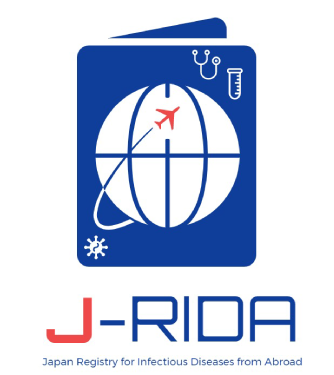PURPOSE
Globalization has made international travel more common. In 2019, before the corona disaster, the number of travelers from Japan to overseas and foreign visitors from overseas exceeded 20 million and 30 million, respectively. In this context, the spread of emerging and re-emerging infectious diseases such as Ebola, Middle East respiratory syndrome, dengue fever, and Zika virus infection poses a public health threat worldwide, as evidenced by COVID-19. Although such infections are mainly brought into Japan by travelers, who are constantly exposed to the threat of these emerging and re-emerging infections, the epidemiology of imported infections in Japan is not fully understood.
Imported infectious diseases are relatively rare in Japan, with 60-80 cases of malaria per year, 50-60 cases of typhoid fever per year, and about 300 cases of dengue fever per year. Emerging and re-emerging infectious diseases are unknown when there are few reports, and a single case report can often provide important insights.
Establishing a disease registry of imported infectious diseases in Japan is expected to lead to an understanding of the epidemiology, elucidation of pathogenesis, and development of diagnostic techniques and therapeutic agents in Japan.
In this study, we will also conduct nucleic acid detection tests and metagenomic analysis, not covered by insurance, for undiagnosed imported infectious diseases, which will enable us to further clarify the diagnosis and may contribute to the diagnosis of unknown infectious diseases.
History
- April 2017
- Research: “A multi-center registry study to elucidate the epidemiology of imported infectious diseases in Japan (Principal investigator: Satoshi Kutsuna),” started and supported by National Center for Global Health and Medicines.
- October 2017
- Registration started in three institutes.
- April 2020
- Continued research as a special project of the National Center for Global Health and Medicines.
- May 2021
- Change of Principal Investigator to Kei Yamamoto.
Subject:
Subjects were patients who visited a participating multi-center network facility within six months of their overseas travel after approval by the Ethics Committee or were referred for suspected overseas travel-related diseases.
Additional tests were conducted for patients above 16 years of age or older whose causative microorganism was not identified by tests within the scope of insurance.
Registered facility conditions:
- Designated Medical Institution for Specified Infectious Diseases, or Class I Infectious Diseases
- Institute participating Research Group of Tropical Diseases and Parasitic Diseases
- Medical institutions for patients after traveling abroad listed on the Japanese Society of Travel and Health web page
Informed consent:
Substitute for obtaining consent by disclosing information in a public information document and opting out.
For an additional test, obtain written consent with a written explanation.
Methods:
Register information obtained from regular practice in a web registry system (REDcap). If conventional tests cannot make the diagnosis, a multi-nucleic acid detection test and metagenomic analysis of clinical specimens should be performed as additional tests.
Research institutes (Prefecture) on 1 July 2024:
[Inactive] Kyoto City Hospital (Kyoto); Japanese Red Cross Nagoya Daini Hospital (Aichi); Tokyobay Urayasu Ichikawa Medical Center (Chiba)

